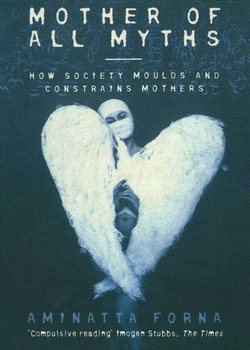Mother of All Myths

Реклама. ООО «ЛитРес», ИНН: 7719571260.
Оглавление
Aminatta Forna. Mother of All Myths
Contents
chapter 1 Introduction: The Motherhood Myth
chapter 2 A Brief History of Motherhood
Maternal instinct versus maternal reality
The creation of maternal love
Scientific motherhood
Conclusion
chapter 3 Pygmalion Mother: The Making of the Modern Myth. Testimony: Barbara
Frederick Truby King
John Bowlby
Towards a child-centred philosophy of childcare
Mother-infant bonding: the creation of a modern fable
The guru legacy
chapter 4 Motherhood in Popular Culture. Testimony: Rebecca
The pregnancy police
The foetal alcohol syndrome (FAS) scare
Low milk and yuppie mothers
Selflessness, selfishness and the rise of maternal correctness
The war against single mothers
chapter 5 Future Perfect. Testimony: Afton
The commercialization of reproductive technology
The baby trail: IVF
Surrogacy
Do we have a ‘right’ to children?
chapter 6 Persecuting Mothers: Motherhood and the Law. Testimony: Karen
America invents foetal rights
The emergence of foetal rights in Britain
The road to foetal rights
When a mother kills and abuses
chapter 7 Other Mothers: Cross-cultural Motherhood. Testimony: Sonia
A mother’s work
One mother, other mothers
A child of one’s own
Guilt
Conclusions
chapter 8 Left Holding the Baby: How Politicians Manipulate Mothers. Half a revolution
Moulding motherhood: policy and practice
Whose job is it anyway?
All our children: social parenting
chapter 9 Conclusion: Relinquishing the Myth
The challenge for women
The challenge for men
The challenge for everyone
Notes
Index
Acknowledgements
About the Author
Copyright
About the Publisher
Отрывок из книги
AMINATTA FORNA
MOTHER OF ALL MYTHS
.....
There is another school of scholarship quietly growing, away from the spotlight. Psychologists such as Susie Orbach, Ann Dally and Diane Eyer argue that ‘traditional’ ideas about motherhood are neither natural nor helpful to children or women. Indeed, the narrow, exclusive mothering style can even be harmful. Eyer and Dally argue that the relationship between mothers and their children has palpably failed to thrive in the artificially claustrophobic world of the private, nuclear family. Nor are children or women helped that such an immensely important task as childrearing (which today requires almost superhuman capabilities) is placed principally on the shoulders of just one person. No one person can do it all; no one person was ever meant to.
Think about how obsessed we are with our mothers. They have the capacity to disappoint us, anger us, frustrate us and burden us in a way no one else does. The entire discipline of psychoanalysis was built on the back of the mother-child relationship. Today, people enter analysis, seek therapy and attend re-parenting classes because of their relationship with their mothers. In sitcoms, relationships with mothers are a source of humour. In Mad About You Jamie develops a facial tic every time her mother visits; Roseanne cannot abide her mother; the humour in Absolutely Fabulous wittily confounds mother stereotypes. There are innumerable books, films and plays containing the same theme: Psycho, Postcards from the Edge, the Debbie Reynolds satire Mother (which, despite a sympathetic portrayal of the mother figure, nevertheless confirms its own thesis that she is to blame for her son’s problems). During the writing of this book I asked a group of friends gathered at my home one evening how many of them had problems with their mothers. Everyone raised a hand. Every single one! One claimed his mother was too domineering; another was angry at his mother spending so much time at work; a third felt her mother favoured her elder sister and the lack of encouragement she received was the reason why her career was stagnant; a fourth rejected the imposition of his mother’s values; and a fifth felt that now she was an adult, her mother had forgotten her. For a group of normal, intelligent, functioning people to have so many grievances towards their mothers is not at all natural, nor is it desirable, however common it may have become.
.....